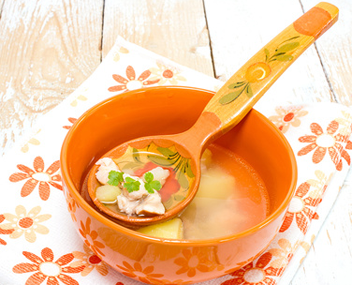What are we cooking?
- Eggs
- Pasta
- Cereals
- A fish
- Meat
- Vegetables
- Seafood
- Mushrooms
- Something else :)
- Porridge
- Soups
- Borscht
- Cabbage soup
- Chicken
- Ear
- Mushroom
- Solyanka
- Green borsch
- Kharcho
- Turnip
- Kulesh
- Shurpa
- Egg soup
- Cheese
- Millet
- Khash
- Herring soup
- Broccoli soup
- Bozbash
- Miso soup
- Buckwheat soup
- Rassolnik
- Rice soup
- Pea puree soup
- Okroshka
- Lentil soup
- Pumpkin soup
- Onion soup
- Chill
- Shulum
- Tom Yam
- Gumbo
- Canned Bean Soup
- Nettle soup
- Minestrone
- Mushroom hodgepodge
- Eintopf
- Tomato soup
- Celery soup
- Botvinha
- Chikhirtma
- Saury soup
- Mashhurda
- Bouillabaisse
- Rhubarb soup
- Dhal
- Canned salmon soup
- Carrot soup
- Lemon soup
- Oxtail soup
- Wild garlic soup
- Vichisoise
- Chorba
- Avgolemono
- Chowder
- Campbell Soups
- Tom Kha Kung
- Tom Kha Kai
- Mussel soup
- Khau tom
- Achiaco
- Ollada
- Fabada
- Shiruko
- Puchero
- Dovga
- Kosido
- Zoni
- Pozole
- Kalya
- Alletta
- Aquacotta
- Tyankonabe
- Noodle soup
- Pea soup
- Barley soup
- Buru-buru
- Straciatella
- Asparagus soup
- Danhuatan soup
- Cullen skin
- Bergen soup
- Fanesque soup
- Buridd soup
- Norwegian fish soup
- Caldu Verde soup
- Chupe soup
- Callalu soup
- Casuela soup
- Choppino soup
- Kok-a-liki soup
- Kalbithan soup
- Kamjakhtan
- Ginestrata
- Lohikeito
- Pancake soup
- Peanut soup
- Pho soup
- Yurma
- Menudo
- Mulligatoni
- Naengmyeon soup
- Bread soup
- Sopa de gato
- Ramen
- Feijoada
- Shark fin soup
- Cherry soup
- Races
- Soto soup
- Cacciucco
- Pork blood soup
- Kakavya
- Tteokguk soup
- Zhur soup
- Chavan mushi
- Shrimp soup
- Kimchi
- Pavese
- Petey
- Sausage soup
- Processed cheese soup
- Salmorejo
- Yoghurt soup
- Khashlama
- Pollock ear
- Milk soup
- Apple soup
- Soyutma
- Flask
- Butter soup
- Soup with zucchini and chicken
- Zucchini and cabbage soup
- Bean puree soup
- Sauerkraut cabbage soup
- Soup
- Barley-mushroom soup
- Lenten borsch
- Beverages
- desserts
- Sausages
- Blanks
How much to cook yurma?
 Cook Yurma for 1.5 hours.
Cook Yurma for 1.5 hours.
How to cook yurma
Products
Pike perch fillet - 300 grams
Chicken fillet - 300 grams
Egg - 1 piece
Semolina - 1.5 tablespoons
Bay leaf - 4 pieces
Pepper peas - 12 pieces
Green onions - 5 feathers
Dill, parsley - 3 branches each
Celery - 1 stalk
Saffron - 0.5 teaspoon
Salt - 2 teaspoons
How to make soup
1. Wash the chicken fillet, pour water into a saucepan as for soup, add 2 bay leaves, 6 peppercorns, 1 teaspoon of salt and put on the stove.
2. Cook the broth for 20 minutes.
3. Rinse the pike perch fillet, cut into pieces, put in a separate saucepan, add water, add 2 bay leaves, 6 peppercorns, 1 teaspoon of salt and put on the stove.
4. Cook the pike perch for 20 minutes after boiling.
5. Rinse and chop the green onion feathers.
6. Wash the parsley and dill, chop.
7. Rinse celery, cut off the root, chop finely.
8. Break the egg into a plate and beat.
9. Remove the meat from the chicken broth, cool and chop the meat into pieces.
10. Add green onions, semolina, beaten egg to the meat. Stir and form walnut-sized dumplings.
11. Remove fish from broth.
12. Mix two broths. There should be more chicken.
13. Put the resulting broth on low heat and cook for 2 minutes.
14. Add the knelles, cook for 5 minutes and then remove.
15. Add finely chopped parsley, dill, celery, saffron to the broth and cook for 2 minutes.
16. Add fish pieces and dumplings to the broth and simmer for 3 minutes.
17. Before serving, put 1 piece of fish and 3 dumplings in each plate.
Fusofacts
- Yurma is a hot first dish consisting of two types of broth: fish and chicken.- The name was chosen by the ancient people who were engaged in hunting and fishing. It was translated from their language as "full in a bowler hat."
- The dish is practically not cooked at the present time, the last time it was mentioned in the work "Domostroy", dated 1547. There are 2 reasons for the disappearance of the dish. First, the ceremonial soup began to be replaced by Western European dishes. The second reason is religious: cooking was contrary to the principles of dividing food into modest and lean.
- Yurma has an astringent composition, which is the reason for strong thirst after eating yurma.
Take a look more soupshow to cook them and cooking time!
Last update Author / Editor - Lydia Ivanova



